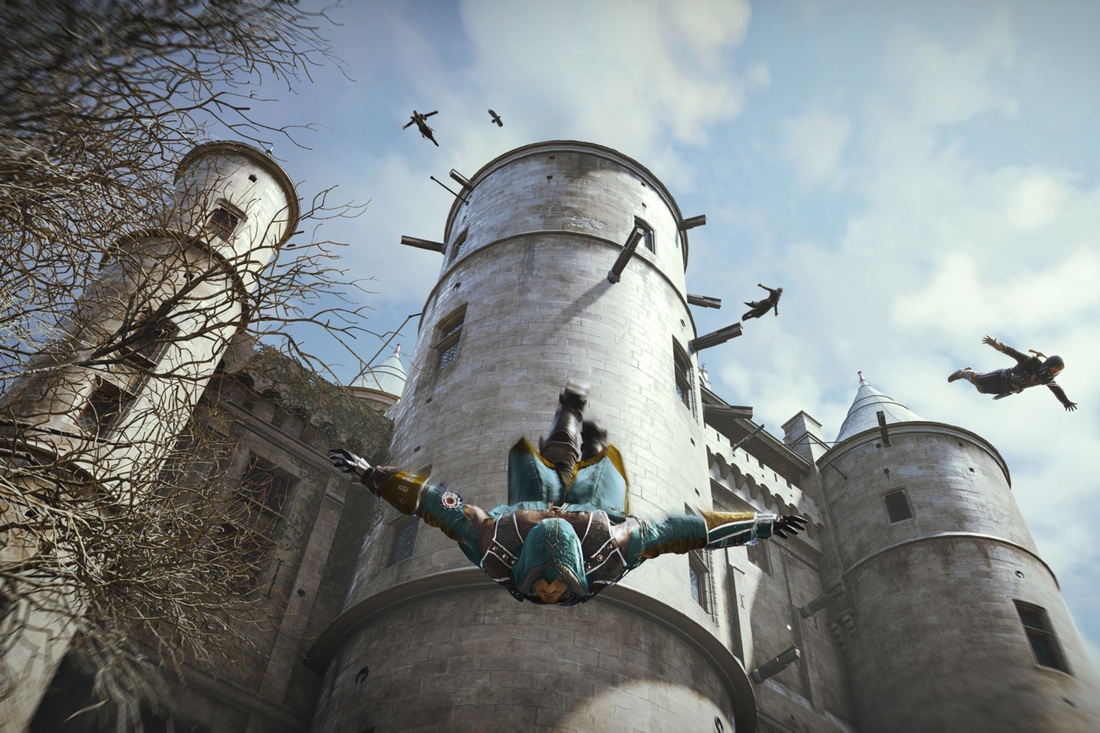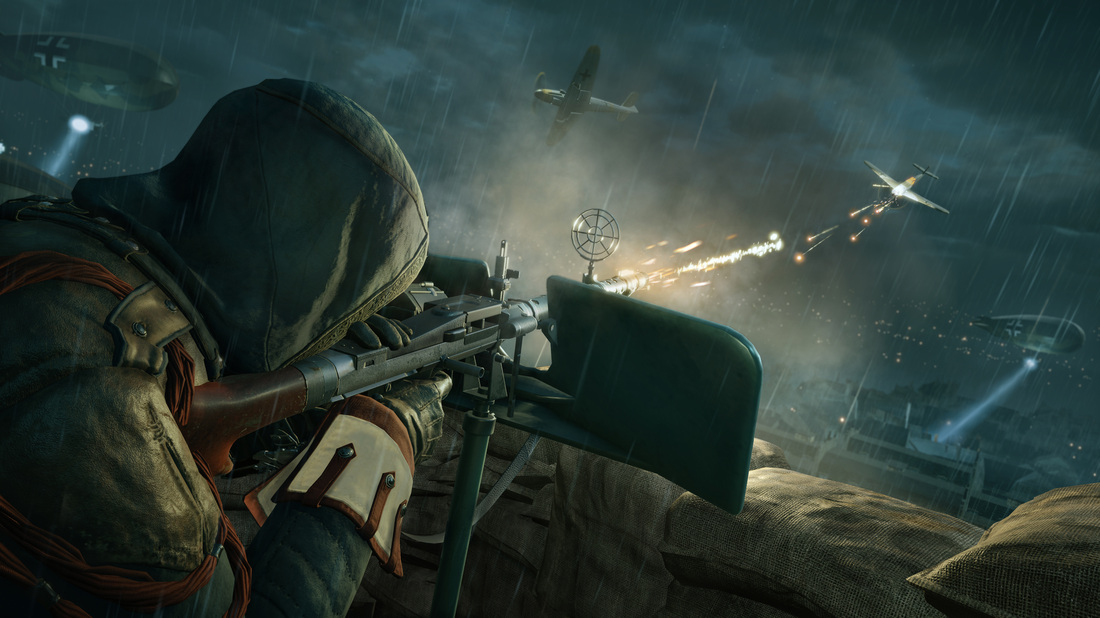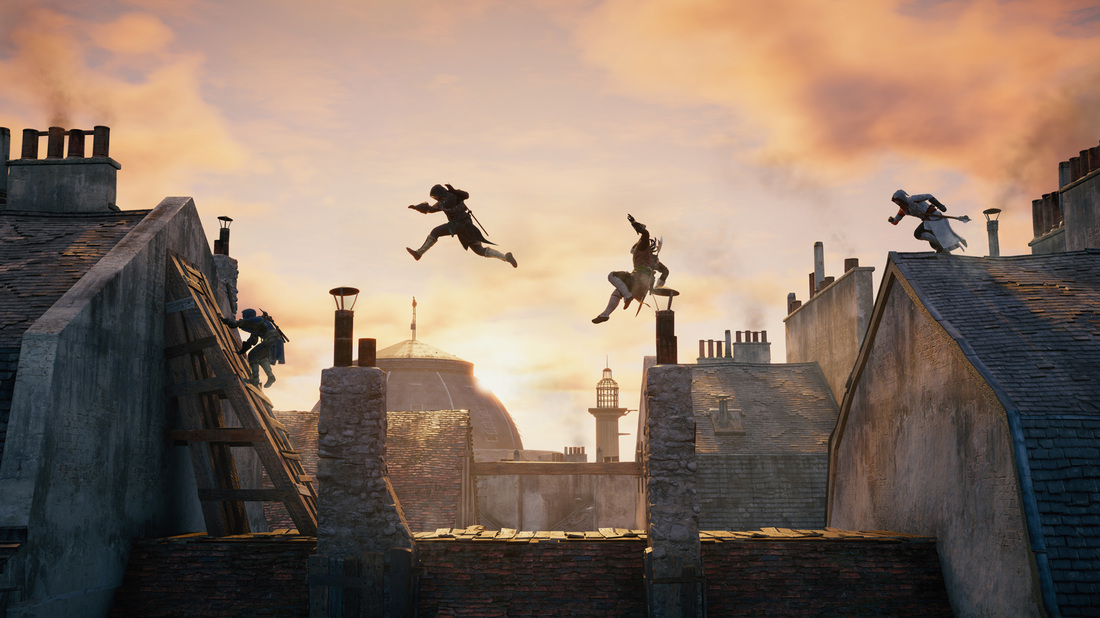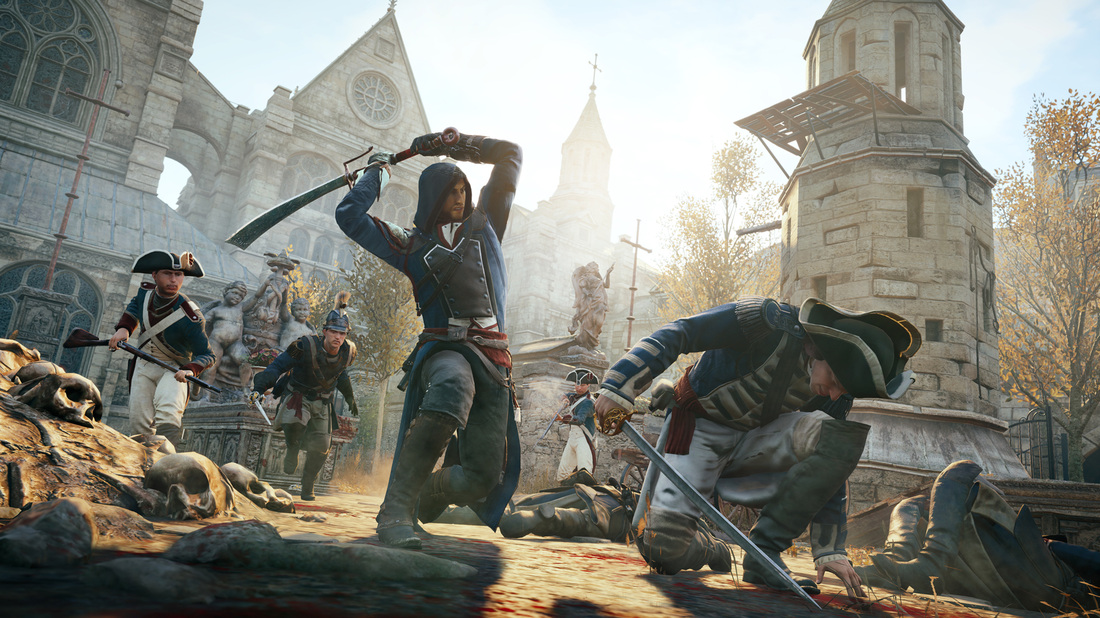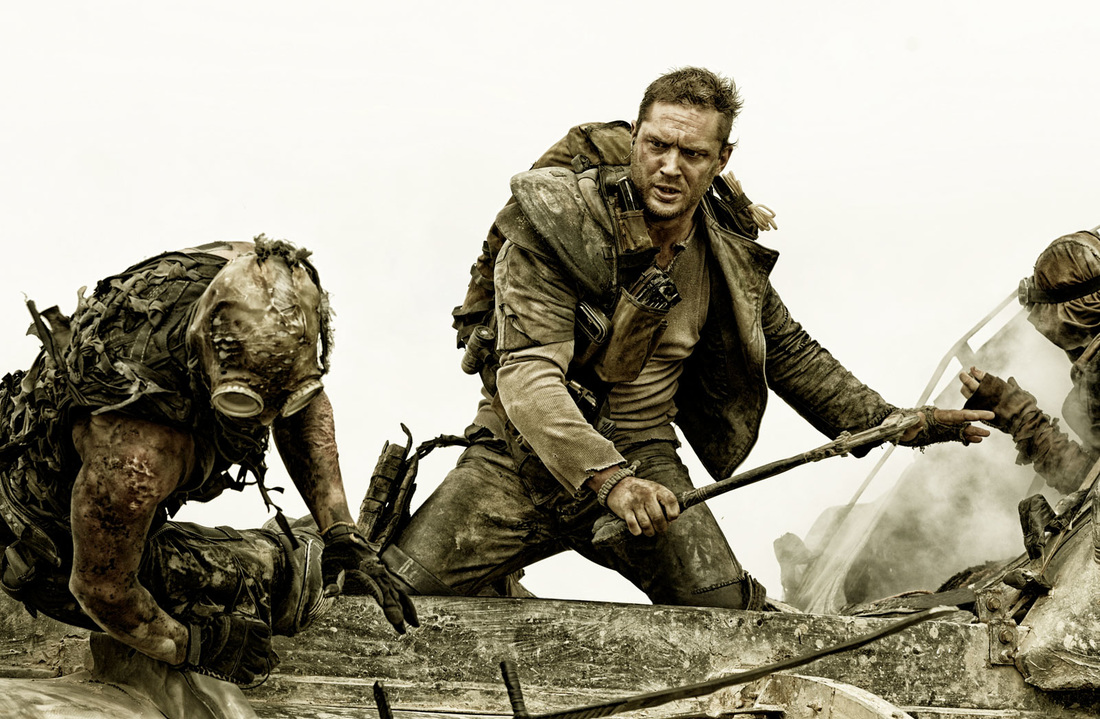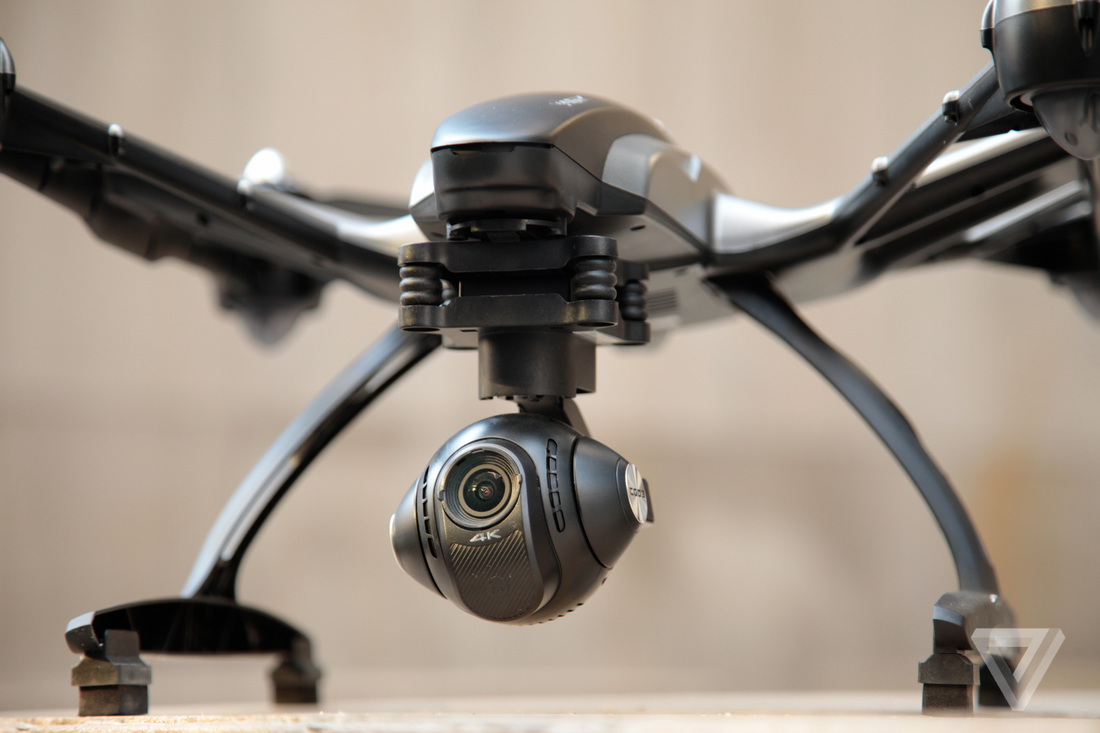If you wait long enough, you'll hear the woman calling, wondering why no one will help her get her purse back.
Much like Aiden Pearce in Watch Dogs, another Ubisoft game, Arno has basically no memorable personality traits, aside from the fact that he's a sociopathic killer. There's a scene where he kills multiple people just so he can steal some wine and have a drink. Afterwards, he doesn't express remorse: he's just mad someone stole his watch while he was passed out from drinking. He’s an incredibly unlikable lead.
Of course, storytelling has never been Assassin's Creed's strong suit. The games are just an excuse to throw you in a massive city and have fun. And Paris circa 1791 is easily the biggest, most detailed city in the series to date. It's not just that it's huge, but it's also dense in a way that's incredibly convincing. Since the game takes place during the French Revolution, you'll often come across impressively huge crowds of people protesting in the streets. Viewed from atop one of the incredibly lifelike buildings in the game, these crowds are amazing to behold. At times the city’s design makes it clear it’s a video game level — there are plenty of conveniently placed hiding spots and carts of hay to jump into — but because everything else feels so true to life, it's easy to dismiss those concessions. Scaling a towering, Gothic church and peering through the stained glass windows just because you can is a pretty amazing feeling. You can also go inside more buildings than ever before, and the transition is seamless.
If only that wonderful city gave you more interesting things to do in it.
Unity's missions aren’t exactly bad, they're just bland and forgettable. What can make them frustrating is when the controls get in the way. Like other Assassin's Creed games,Unity features a very automated control scheme: you can make Arno run, jump, or climb simply by holding the right button at the right time. When it works right, it's brilliant, letting you scale huge buildings and speed across the Parisian skyline with little effort. But on multiple occasions Arno leapt to his death when I was trying to dive into a cart full of hay, and he has an unfortunate tendency to get stuck on tiny bits of furniture or scenery. After spending more than 20 hours with the game, I still can't successfully get through an open window on the first try.
The control issues are particularly problematic during chase sequences, where one small error means you have to start the whole thing over again. Arno may be a budding master assassin, but he's prone to small errors. Compounding the control problems is a laundry list of technical issues that plague Unity. Some are merely cosmetic: you'll come across people running in place and see characters simply pass through one another as if they were ghosts. Once I spotted a man seemingly impaled by a tree, yet he made sure to wave at people who passed by.
When everything clicks, Unity reminds me why Assassin's Creed has become so popular. The joys of scaling a massive building or expertly pulling off an assassination are unique to the franchise, and they're thrilling. But aside from the beautiful setting, there's not much here to distinguish Unity from past games. A bigger game doesn’t make for a better one, and while Paris offers more places to go, it doesn’t give you new things to do.
Maybe it's a case of franchise fatigue — there's been a new Assassin's Creed game in some form every year since 2009 — but nearly every aspect of the game, from its mission design to its story, feels like a rehash of old ideas. Toss in some terrible glitches and frustrating controls, and you have a game that feels like a step backward for the series. Considering it's the first Assassin's Creed built exclusively for the new generation of game consoles, that's incredibly disappointing.
There's a woman pestering me to catch the thief who stole her purse, but I keep ignoring her. I know the chase will just bore me.
